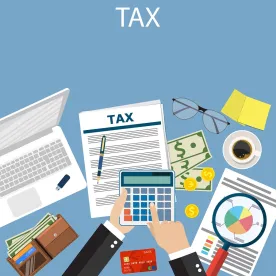On May 16, 2020, Maine Revenue Services released a Tax Alert, updating taxpayers on a number of tax-related developments, including Governor Mills’ May 12 executive order and updated MRS FAQ answers.
-
Non-residents providing disaster relief in Maine. During the COVID-19 disaster period only, a non-resident’s compensation for services or income from a trade or business will not be subject to Maine income tax if the income or compensation is directly related to the declared state emergency and the services were requested by the state, a municipality, a political subdivision, or a registered business. The individual’s presence in Maine must be solely to perform such services. The COVID-19 disaster period will expire 30 days after the Maine state of emergency is terminated. Notably, Maine has not provided any relief from individual income tax, and related income tax withholding for employers, for non-residents present in Maine during the coronavirus pandemic for reasons other than disaster relief.
-
Sales tax exemption for disaster supplies. During the COVID-19 disaster period only, a person who is not otherwise required to register for sales and use tax collection in Maine can bring supplies and resources into Maine exempt from sales and use tax. The property must be used to conduct activities directly related to the declared state emergency at the request of the state, a municipality, a political subdivision, or a registered business, and importantly, the property must be present in Maine only during the disaster period.
-
Municipalities allowed property tax deadline flexibility. The executive order allows municipal collectors to delay sending a property tax lien notice to delinquent taxpayers until 60 days after the state of emergency has terminated. With respect to the 2019 property tax year, the executive order allows municipalities to extend and reestablish property tax due dates and the dates that interest will begin to accrue. With respect to the 2020 property tax year, if the municipality cannot hold its annual budget meeting before the property tax commitment date, municipal officers are permitted to set the property tax due date, interest rate, and dates interest will begin to accrue based on the prior year’s budget. Taxpayers should check with their municipalities to determine whether any dates have been extended.
-
Legislative developments summary. Maine Revenue Services has published a summary of tax-related bills passed during the abbreviated 2020 legislative session. Although few bills were passed before the session was cut short, important changes to bonus depreciation and the Maine capital investment credit, credits for production of biofuel and renewable products, and a credit for affordable housing projects were all enacted.






 />i
/>i

